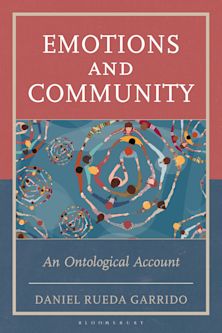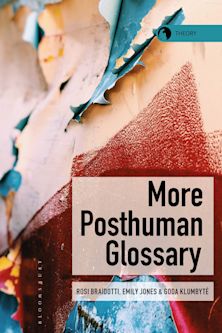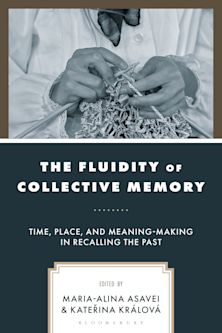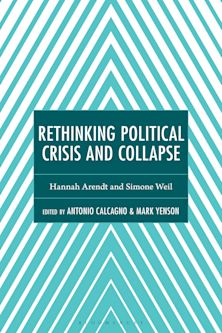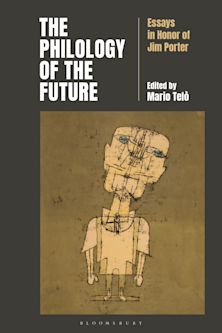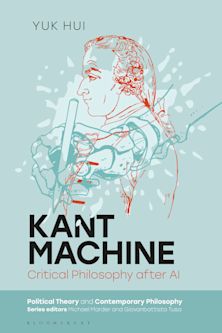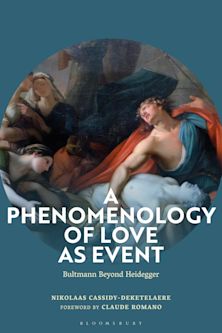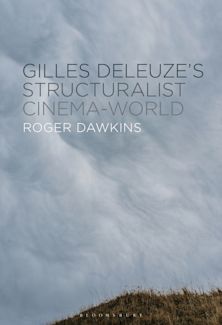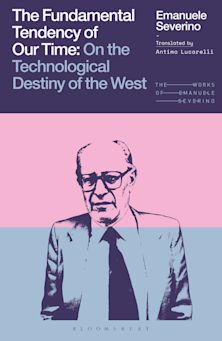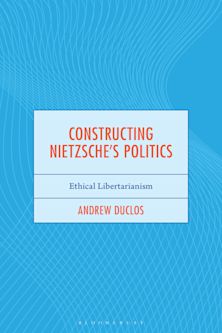- Home
- ACADEMIC
- Philosophy
- Continental Philosophy
- The Guattari Effect
The Guattari Effect
The Guattari Effect
You must sign in to add this item to your wishlist. Please sign in or create an account
Description
The Guattari Effect brings together internationally renowned experts on the work of the French psychoanalyst, philosopher and political activist Félix Guattari with philosophers, psychoanalysts, sociologists, anthropologists and artists who have been influenced by Guattari's thought.
Best known for his collaborative work with Gilles Deleuze, Guattari's own writings are still a relatively unmined resource in continental philosophy. Many of his books have not yet been translated into English. Yet his influence has been considerable and far-reaching. This book explores the full spectrum of Guattari's work, reassessing its contemporary significance and giving due weight to his highly innovative contributions to a variety of fields, including linguistics, economics, pragmatics, ecology, aesthetics and media theory. Readers grappling with the ideas of contemporary continental philosophers such as Badiou, Žižek and Rancière will at last be able to see Guattari as the 'extraordinary philosopher' Deleuze claimed him to be, with his distinctive radical ideas about the epoch of global 'deterritorialization' we live in today, forged within the practical contexts of revolutionary politics and the materialist critique of psychoanalysis.
Table of Contents
Chaosmosis (1991) Félix Guattari \ Chapter 2: The Vertigo of Immanence Interview with John Johnston, June 1992, Félix Guattari \ Chapter 3: On
Contemporary Art Interview with Oliver
Zahm, April 1992,Félix Guattari \ Part 2 Critical and Clinical Protocols
\ Chapter 4: Analysis, between Psycho and Schizo Jean-Claude Polack \ Chapter
5: The Deterritorializsd Unconscious Peter Pál Pelbart \ Chapter 6: Maps
and Refrains of the Rainbow Panther Anne Querrien \ Chapter 7: Guattari
and Anthropology: Existential Territories Among Indigenous Australians Barbara
Glowczewski \ Part 3 Social and Political Connections \ Chapter 8:
Guattari's Contributions to the Theory of Semiocapitalism Gary Genosko \
Chapter 9: Relaying a War Machine? Isabelle Stengers \ Chapter 10:
Gilles-felix Antonio Negri \ Chapter 11: A Schizoanalytical Knight on
the Chessboard of Politics Anne Sauvagnargues \ Chapter 12: Repression,
Expression, Depression Franco 'Bifo' Berardi \ Part 4
Ethico-aesthetic Effects \ Chapter 13: From Aesthetic Autonomy to
Autonomist Aesthetics: Art and Life in Guattari Stephen Zepke \ Chapter
14: Going to the Cinema with Félix Guattari and Daniel Stern Raymond Bellour
\ Chapter 15: Nothing is Established
Forever Pascale Criton \ Chapter 16: Félix Portraits 2010 Annie Ratti
\ Conclusion : The Guattari-Deleuze Effect Éric Alliez \ Contributors \ Bibliography
\ Index
Product details
| Published | 30 Jun 2011 |
|---|---|
| Format | Ebook (PDF) |
| Edition | 1st |
| Extent | 320 |
| ISBN | 9781441186232 |
| Imprint | Continuum |
| Publisher | Bloomsbury Publishing |
About the contributors
Reviews
-
Author article in Radical Philosophy, Issue 169
-
The contributors-Éric Alliez, Andrew Goffey, Jean-Claude Polack, Peter Pál Pel-bart, Anne Querrien, Barbara Glowczewski, Gary Genosko, Isabelle Stengers, Antonio Negri, Anne Sauvagnargues, Franco 'Bifo' Beradi, Stephen Zepke, Raymond Bellour, Pascale Criton, Annie Ratti, as well as Guattari himself form a "collective assemblage of enuncia-tion" that re-animates the Guattarian corpus for a new generation...What can keep desire on a trajectory that will lead it beyond the plane of exploitation and commodification? What form(s) of desire should be de-sired? Looking to (looking at) Guattari is one way to begin to theoretically answer these questions. This perhaps simple point is literally and materially rendered in the pages of Ratti's photo-art essay. The silence of these images speaks of what remains, and is yet to be said, in the name and in the spirit of Guattari. This is perhaps finally the most significant effect of Guattari's thought today: it spurs the desire to look again at Guattari's life, work, and legacy. The generosity of his texts invite us 'to come back to it, not so as to conclude, but to start again.' (Alliez, 260)
Jonathan Fardy, Western University, Foucault Studies
-
A strange effect of The Guattari Effect is that it slows down the reader. This machine-text does not whiz along as does the maddening velocity of Anti-Oedipus or A Thousand Plateaus. The volume takes time for remembering, reflecting, but also for extending and enriching the work, multiplying the effects, for what was, and still could be, Guattari. This involves-as the volume demonstrates-far more than “close reading.” It tries to think how new subjectivities, new modes of living and resisting, come, and can come, into existence. It rides the wave of Guattari's enunciation beyond the text to what gives (or gave) life to it. It directs us beyond the classroom, beyond the lecture hall, out, perhaps even into the streets.
Jonathan Fardy, Western University, Canada, Foucault Studies

ONLINE RESOURCES
Bloomsbury Collections
This book is available on Bloomsbury Collections where your library has access.












